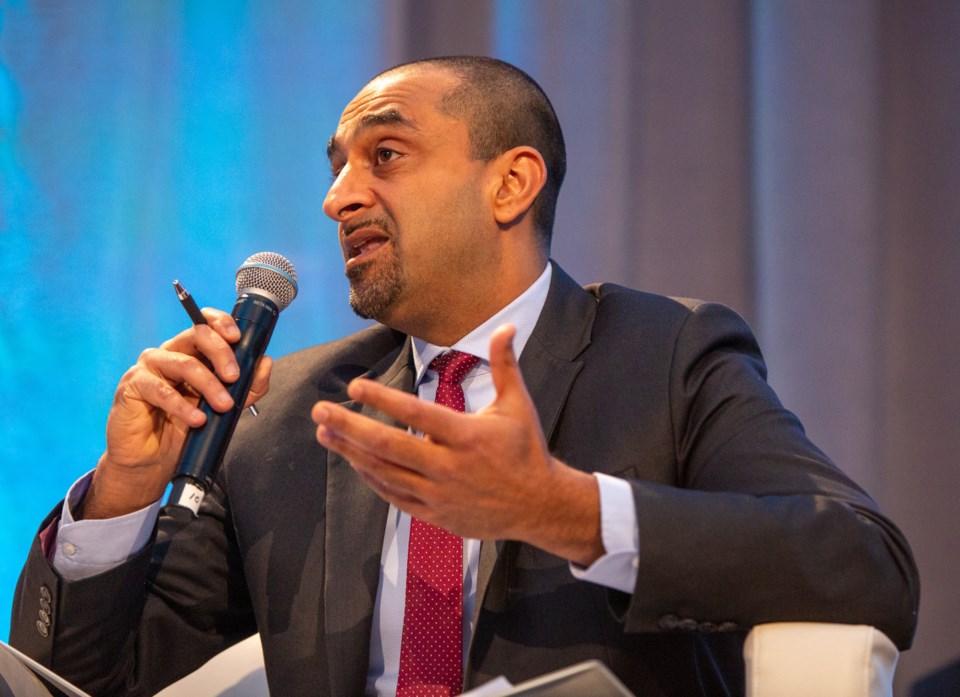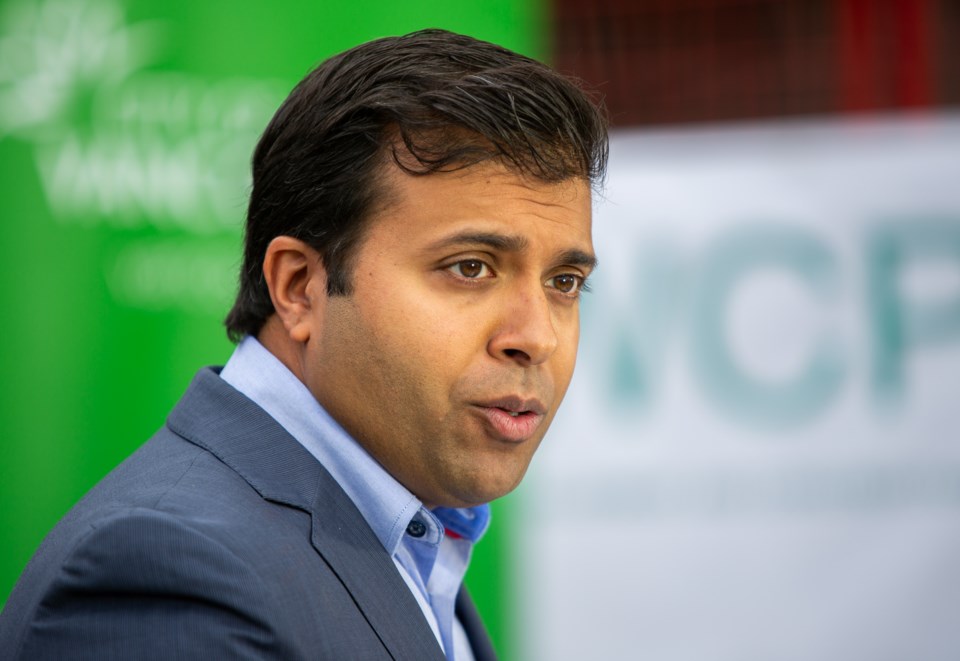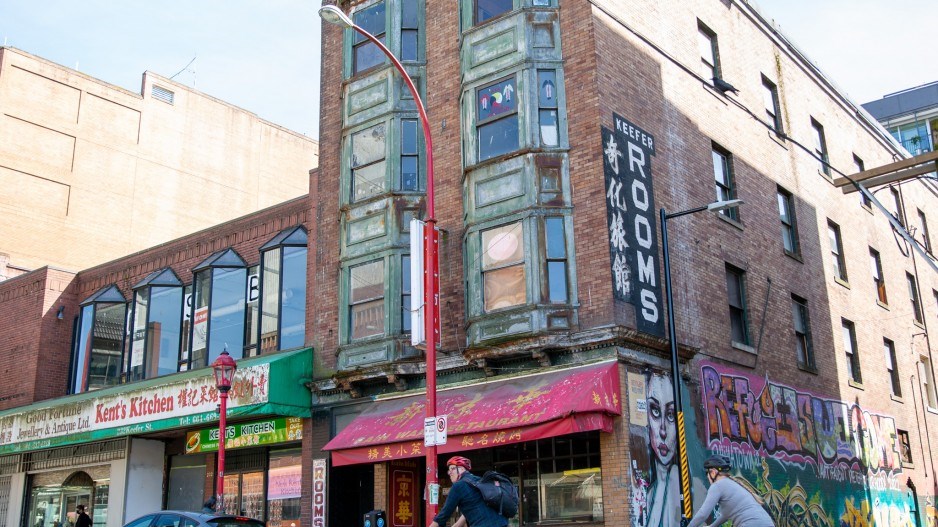A City of Vancouver-led $1-billion strategy to improve conditions of low-income housing stock that includes purchasing up to 105 private single-room-occupancy (SRO) buildings is a slow work in progress as only $2 million has been secured for the plan.
The previous city council directed staff in October 2020 to pursue money from senior governments for the three-stream SRO strategy, which was estimated at the time to cost $1-billion and be spent over several decades.
The strategy calls for an acquisition fund to buy up to 105 SROs and a renovation and redevelopment fund to renovate 2,500 rooms.
The third stream is a residential rehabilitation assistance program to improve 1,300 rooms and secure affordability in buildings where owners aspire to continue to operate low-income housing.
So far, the city, provincial and federal governments have agreed to contribute one-third each of a $2 million budget to develop the strategy, which is expected to take 18 months to complete before decisions are made about implementation.
Still waiting on province, feds
At a city council meeting in May, city manager Paul Mochrie made clear that moving forward with purchases and renovations of SROs cannot be done without significant investments from senior governments.
“We do not have senior government commitment to actually do the redevelopment of these buildings,” Mochrie said. “So I think this is a key advocacy point for council.”
The first phase of the work, as council heard in May, is focused on identifying 10 publicly owned SROs for redevelopment. Staff will also consult private owners to gauge their interest in redevelopment, said Celine Mauboles, the city’s managing director of housing and homelessness services.
“We really want to reach out to private owners and the [Chinese] society buildings [in Chinatown] to look at how they can be involved in the development of the strategy, as well as reaching out directly to SRO tenants,” Mauboles said.
SROs have long been described by staff as housing of last resort for people before they end up homeless.
Though politicians at all levels of government have said the type of accommodation should be phased out, the consensus is it will take decades to redevelop into self-contained social housing units.
As Mochrie pointed out, the strategy relies heavily on the provincial and federal governments.

Housing Minister Ravi Kahlon wants the federal goverment to "cost match" provincial investments to buy private SROs. Photo Mike Howell
Homelessness, urban encampments
Glacier Media obtained an excerpt of a letter B.C. Housing Minister Ravi Kahlon sent in June to his-then federal counterpart, Ahmed Hussen. In it, Kahlon called on the feds to “cost match investment to revitalize the Downtown Eastside in Vancouver with large-scale SRO purchases and redevelopments.”
He said B.C.’s investment in the province’s homelessness strategy totals $1.18 billion in the 2023 fiscal plan. The province already owns several SROs in the Downtown Eastside and has renovated some of them.
“Federal support for capital upgrades which prioritize health and safety issues would enhance affordability and livability for SRO residents and is critical to meeting the needs of the most vulnerable population,” Kahlon said.
“The condition of SROs, particularly in the summer, feed into the prevalence of homelessness and urban encampments.”
In November 2021, during a visit to Vancouver city hall, Hussen showed interest in the city’s SRO strategy, pointing out the federal government’s $4 billion “municipal accelerator fund” was available for various housing programs in the country.
He said it would be up to each city to choose the projects, adding that the federal government would not “micro-manage” Vancouver’s housing priorities.
“There's a lot coming down the pipeline, and this particular project could conceivably fit into that framework,” said Hussen, noting the municipal fund is designed to go directly to cities “that are thinking outside the box” when it comes to providing more affordable housing.
Hussen noted various federal funding streams have allowed cities to acquire buildings. In 2021, the city used federal money to buy the former Days Inn on Kingsway.
“We've proven through our partnerships with the City of Vancouver that we're willing to deploy different pockets of money in our federal toolkit to do things directly with the City of Vancouver and in other municipalities in British Columbia, but also in partnership — sometimes when it's needed — with the provincial government,” the minister said.
“So I don't see how this is any different.”
Hussen has since been appointed Minister of International Development, with Sean Fraser now the federal government’s minister responsible for housing. Fraser was scheduled to attend a housing announcement Wednesday at the University of B.C.

Vancouver-Granville MP Taleeb Noormohamed at a recent news conference in Vancouver. Photo Mike Howell
'Stay tuned'
Vancouver-Granville MP Taleeb Noormohamed attended a housing-related news conference Aug. 10 in the Downtown Eastside on behalf of Fraser, where Glacier Media asked him about the status of the federal government’s commitment to the city’s $1-billion SRO strategy.
“The conversations are definitely ongoing,” Noormohamed said.
“As we have said from the outset, we are keen to work with the province and the city to ensure that quality, dignified housing is available — particularly in the Downtown Eastside — for vulnerable populations. So we're going to keep working with the province and the city. So stay tuned.”
Meanwhile, the city continues to push forward with plans to renovate the vacant Regent Hotel on East Hastings and redevelop the Balmoral Hotel site, which is across the street from the Regent and is being slowly demolished.
Combined, the Balmoral and Regent offered approximately 300 rooms for tenants on low incomes. The city purchased the SROs in November 2020 from the Sahota family for an undisclosed sum with the intention to redevelop them for social housing.
Heat dome
The city has also approved more than 900 shelter-rate housing units since 2017, yet a recent city report said “the growing need for low-income housing has meant that we continue to rely on the SRO stock as a housing of last resort, despite its inherent challenges.”
The report added that the growing number of SRO building closures related to life-safety issues or fires, the COVID-19 pandemic, the 2021 heat dome and the arctic cold snap during the winter of 2021-22 all demonstrated the critical need to renew or replace the outdated housing stock.
“However, opportunities for on-site replacement of private SROs have been limited without partnership funding or land assemblies that can enable large redevelopments,” the report said.
“Furthermore, factors such as small lot sizes, heritage requirements and zoning and development regulations present obstacles to realizing the density needed to achieve full replacement.”
As of January 2023, there were 146 open SRO buildings containing approximately 6,500 rooms. Just under 50 per cent of SROs are privately owned, compared to 52 per cent in 2019. Government or non-profits own 50 per cent of the SRO stock, and two per cent belong to Chinese benevolent societies.
'They have my number'
Christopher Wall, who owns eight SROs in the Downtown Eastside, has previously told Glacier Media that government needs to make substantial investments in the purchase of private SROs and that they should all be in the public domain.
Wall’s SROs include The Arlington, West Hotel, Hotel Empress and Keefer Rooms.
“First of all, it's the only way the government can control rent increases, and I think that you're going to see rents continue to increase,” said Wall, who said inflationary costs related to insurance, tax, debt, repairs and utilities are making it difficult for him to look at keeping his investments, without spiking rents or cutting services.
“If government has control, they can bring in all sorts of government services, health-related services, fire protection and the like.”
He disclosed that he is in ongoing discussions with the province in an attempt to sell his hotels.
“They certainly know who we are, and they have my number,” he said.




